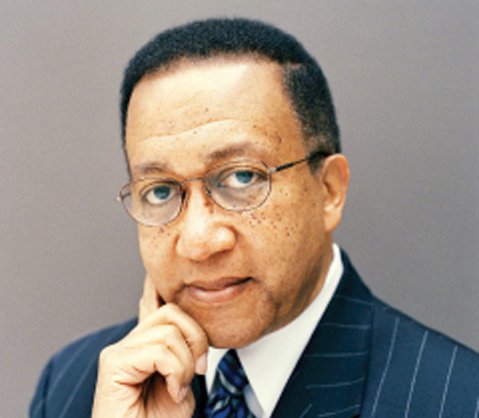A cue from Frederick Douglass
7/3/2015, 2:59 p.m.
Benjamin F. Chavis Jr.
As our nation prepares for its annual celebration of Independence Day, I re-read Frederick Douglass’ Fourth of July speech delivered 163 years ago in Rochester, N.Y. I look at it with a specific eye toward what we can learn from it in the wake of the recent tragedies of Charleston and North Charleston, S.C.; Cleveland; New York City; Ferguson, Mo; and Sanford, Fla.
Frederick Douglass observed, “Oppression makes a wise man mad. With brave men there is always a remedy for oppression…The freedom gained is yours; and you, therefore, may properly celebrate this anniversary. The 4th of July is the first great fact in your nation’s history—the very ringbolt in the chain of your yet undeveloped destiny…Pride and patriotism, not less than gratitude, prompt you to celebrate and to hold it in perpetual remembrance.
“I have said that the Declaration of Independence is the ringbolt to the chain of your nation’s destiny; so, indeed, I regard it. The principles contained in that instrument are saving principles. Stand by those principles, be true to them on all occasions, in all places, against all foes, and at whatever cost. The sunlight that brought light and healing to you, has brought stripes and death to me. This Fourth July is yours, not mine. You may rejoice, I must mourn…What, to the American slave, is your 4th of July? I answer; a day that reveals to him, more than all other days in the year, the gross injustice and cruelty to which he is the constant victim.”
We are still mourning. This time, in Charleston, S.C., for the racially motivated murders of the Rev. Clementa Pinckney and eight others at Emanuel A.M.E. Church. But our spirit and our determination to be free will not be broken even after centuries of cruelty and oppression. Giving up out of fear or giving in to injustice are not and will not be in our menu of options. The spirits of David Walker, Denmark Vesey and Frederick Douglass live on within us.
Mr. Douglass’ intellectual imperatives are quite appropriate to reject the contemporary tolerance of poverty, injustice and ignorance. We have to move beyond removing the symbols of racism and oppression, such as the Confederate flag, to removing the substantive structures and policies that deny equal opportunity to advance and improve the quality of life of all Americans.
The issue today is not what the Confederate flag represents. The real issue should be what does the American flag represent to African-Americans and others who yearn for freedom? How are American businesses and institutions of higher learning making a difference for millions of people throughout the country who aspire to prosper and to make our world a better place for all people?
An appropriate response to Mr. Douglass’ admonitions would be: (1) Education—maximizing high quality equal education for all without discrimination or restriction because of race, color, gender, creed or any other form of social exclusion. (2) Criminal justice reform and overcriminalization—There are simply too many people imprisoned in America, more than 1 million disproportionately African-American and Latino American. (3) Principled entrepreneurial development—with a particular emphasis on economic equality and inclusiveness in the global marketplace.
The words of Frederick Douglass reverberate today with a renewed sense of urgency and commitment to organize and mobilize a new, bipartisan coalition to bring about real change in America. The executive, legislative and judicial branches of the U.S. government now appear poised finally to begin to work together in the interest of empowering all people. But we must not be silent witnesses. We must be vocal. We must stand without fear. It is time once again, in the spirit of Mr. Douglass, to speak truth to power to empower!
The writer is the president and CEO of the National Newspaper Publishers Association.







